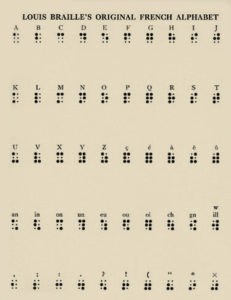Here’s why I like being in focus groups:
- I am sometimes the only person with a disability in the group, and I feel strongly about people with disabilities being included in decision-making
- People ask you questions about what you think about things.
- Your response is important to the person asking the question.
- Even if they don’t ask a question, they are interested in just about anything you say.
- Often you’re paid for your trouble, either with gift cards, or, sometimes…cash!
I’ve participated in focus groups about web sites, travel opportunities, health care, but the focus group I was in last week, called “Exploring Growth After Vision Loss” was one I could really, well…focus on. The focus group was part of a research study exploring whether people who were once able to see experience any psychological growth as a result of losing their sight.
The four of us who were there for the two-hour study all lost our sight at different ages – one as a teenager, me as a young adult, a third when they were in their thirties and another in middle age. The first half-hour was a discussion of what the words “adaptation” and “acceptance” and “growth” mean.
The rest of the time was spent exploring whether going through a stressful, adverse, or traumatic event might leave a person in a higher place psychologically than the level they were functioning at before the event.
We shared our experiences with each other – and the focus group leader – about losing our vision and adjusting to vision loss, and we were asked specific questions like “What does it mean to you to consider how you may have grown from the experience of losing your vision?” We were asked to come up with some Examples of ways we think we may have grown since losing our sight. Each of us got a pre-paid debit card for participating in the study, and when the focus group leader gave me mine, I told her I should be the one paying her. The whole thing was like group therapy!
It’s not that unusual for me to be among a group of blind people – I take computer classes at Second Sense, I regularly attend touch tours before plays at Chicago theaters – but those groups include people who were born blind. Last week it was oddly comforting to be part of a small group of people who’d all been able to see before going blind. A lot of what we said to each other required no explanation, and we could talk honestly about the experience without anyone feeling sorry for us. By the end of the two hours, we’d each been able to come up with at least one example of the growth the focus group leader was looking for.
One who’d volunteered a little before losing their sight feels said the volunteer work they do now is much more heartfelt. “I used to volunteer because I knew it was something I should do, but now I feel more empathy, I want to help people whenever I can, I give – and accept – help with love.” Another said they deal better with challenges now. We all agreed that blindness had made us more resourceful, and yes, we appreciated the growth and all, but still….
As we were getting ready to leave, one participant compared our experience to that saying about going back to being a teenager and knowing what you know now. “Everything we’ve learned about dealing with challenges, acceptance, adjustment, just think,” they said. “If someone figured out a way for us to get our sight now, we’d be unstoppable!”
Wow! What a very unique and interesting opportunity!!
It sure was. It was all I could do to limit the word count on this blog post to 500 words!
Interesting study and a thought provoking post. It’s true that we grow in the face of adversity, but at times I wished I was a short person with a boring life. And yes, you are super tall!
Oh. Iliana. How I love you for this comment. Short and boring does sound attractive every once in a while…but with me that feeling usually doesn’t last long. Let’s stand tall!
Leave a Response